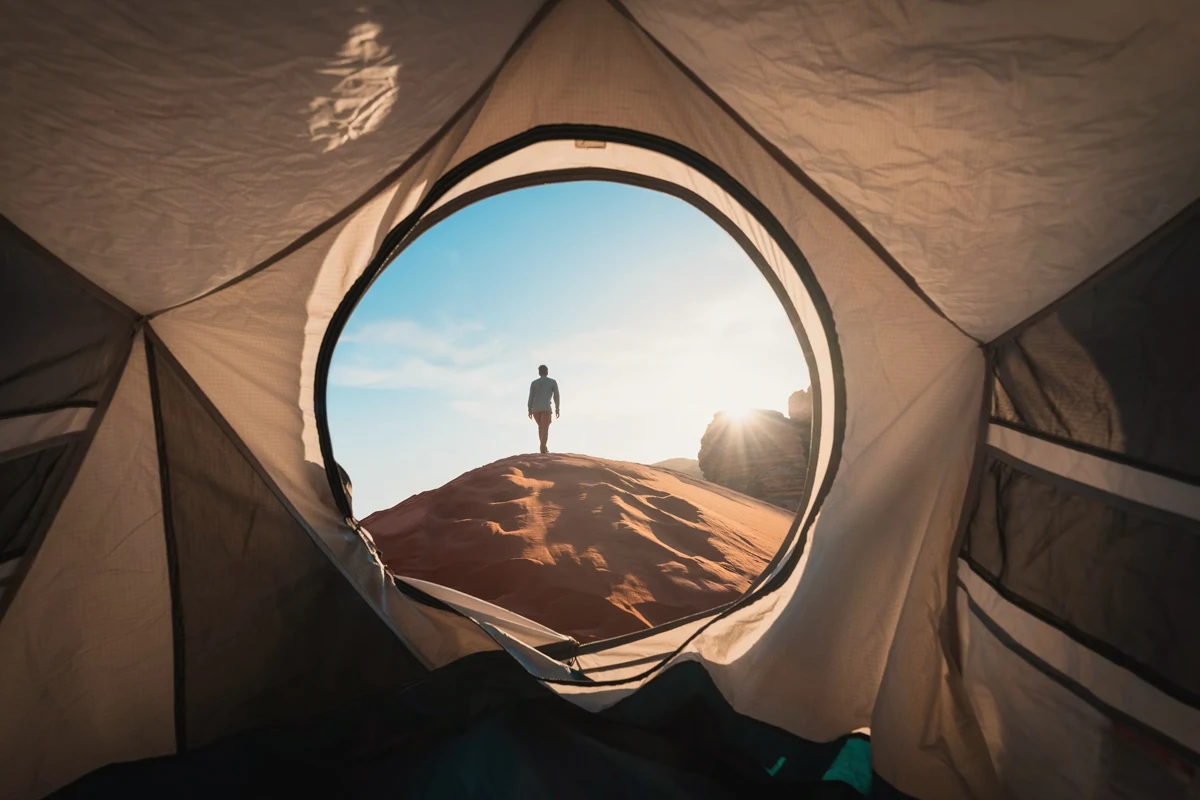Photo: Neom
Few things will sate a traveler’s adventure quite like the great outdoors. Hikers, campers, and other outdoor adventurers enjoy a freedom that can only be felt when exploring the natural world. Time often passes slowly and pleasantly when one has little company aside from the local flora and fauna.
But the contemporary camper and outdoor adventurer may still want to stay connected to their mobile network and the internet. A stable mobile phone signal and reliable access to Wi-Fi allow travelers to stay in touch with their loved ones during outdoor excursions, which guarantees peace of mind, especially in case of emergencies. With a good connection, outdoor travelers can also enjoy conveniences that will enrich, rather than detract, from their overall experiences. Examples include navigating using GPS, coordinating with travel buddies using messaging apps, and even sharing snippets of the journey on social media in real-time.
If it’s your first time going camping or on an extended outdoor adventure in a place like Singapore, here are some tips that will allow you to stay connected to the rest of cyberspace while you’re traveling:
#1. Use the Right Smartphone Add-Ons
From gadgets used only to make calls and send texts, mobile phones have since evolved into miniature computers that can easily connect to the internet. As such, your smartphone can serve as a versatile tool for keeping you connected on your next camping or hiking trip—as long as it’s equipped with the right add-ons.
Consider acquiring a backup phone for travel purposes and outfitting it with a SIM-only plan. A good plan with sufficient add-ons should provide you with enough mobile data for the trip and wide network coverage in your locality. In Singapore, it won’t be hard to compare packages and find the cheapest SIM only plan that fits your travel needs. You can compare plans on an aggregator website or ask experienced outdoor travelers which mobile plans they typically rely on.
Photo: Sidney Pearce
#2. Bring a Portable Wi-Fi Router or Dongle
Are you worried that being overly reliant on a mobile data plan will drain your smartphone’s battery? If so, it’s also an option for you to use a dongle or portable Wi-Fi router instead. Either device will allow you to maintain a personal Wi-Fi hotspot that can accommodate multiple gadgets, like smartphones and laptops. They’re sure to come in handy if you want to guarantee internet connectivity for a group bigger than a few people.
Depending on factors like your budget and the size of your group, one might be better for your application than another. Portable Wi-Fi routers are the sensible option for travel groups that have between 20 and 100 devices between them. For a small group that will on average only need to connect 5 to 7 devices, a dongle should suffice.
#3. Install Wi-Fi in Your RV
Will you be traveling or camping using a recreational vehicle or RV? If so, consider installing Wi-Fi in your vehicle and turning it into a digital oasis. With a dedicated Wi-Fi connection on board, it won’t be hard to maintain communication, browse the internet, and even work remotely while you’re on the move. This option is an excellent choice for digital nomads who need to be connected for long periods, but who also don’t want to sacrifice the freedom they’ll have on the open road.
Photo: Daniel J. Schwarz
#4. Add Satellite Internet to Your RV
If your adventures lead you to remote and off-grid locations, satellite internet may be your ultimate connection lifeline. Installing a satellite dish on your RV will allow you to gain uninterrupted access to the internet, even in areas with no traditional cellular coverage.
Satellite internet can be expensive, and it’s not the best option for short-term outdoor travelers. But if you’re the type of adventurer who wants to begin spending a lot of time outdoors, it’s an investment you should definitely consider.
#5. Look for Campsites and Other Outdoor Facilities That Have Wi-Fi
Lastly, for added convenience, look for campsites and other facilities that guarantee their own Wi-Fi connections for a fee. This eliminates the need for campers to bring their own Wi-Fi devices or install any additional software.
If you want to rely on the venue’s Wi-Fi, however, you may also want to have a virtual private network or VPN at the ready. This way, you can boost your online security and keep your online usage private from other people, which may be a concern for you in such a public facility.
Let's summarize...
Unplugging from the city and reconnecting with nature can give you just the reset you need to find joy in your everyday life. But remember that you don’t have to go entirely off the grid and totally disconnect from the people you know and love. Try any of the solutions above to have a great time outdoors and to properly stay in touch with everyone else in your network.
Lots of love,
Liz








